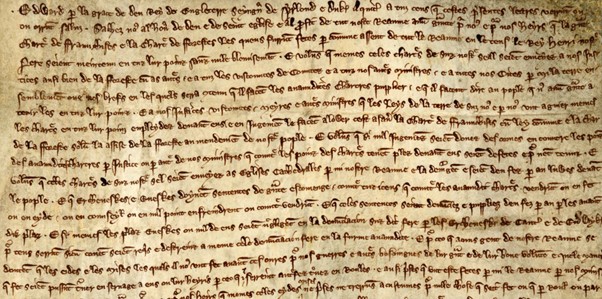
The National Archives hosted an evening with the medieval experts who recently discovered a ‘copy’ of the Magna Carta was actually an extremely rare original.
An investigation led by Prof David Carpenter of King’s College London revealed the document held at Harvard Law School since the 1940s and thought to be a copy had actually been issued by King Edward I in 1300. Prof Nicholas Vincent, a medieval expert at the University of East Anglia, researched its journey to Harvard from its first destination, Appleby in Cumbria, via two London salerooms.
Dr Paul Dryburgh, Principal Medieval Records Specialist at The National Archives, said: “This extraordinary discovery greatly enhances our knowledge of Magna Carta in the century after its first issue, showing it still has many exciting secrets to give up. The National Archives was delighted to host Professors Carpenter and Vincent to share the forensic nature of their research into this extraordinary document.”
The National Archives’ 1225 Magna Carta from the Duchy of Lancaster collection was on show at the Pipe Roll Society event, along with other unique documents held at the archives, including the first official record of the charter copied into a legal parchment roll.
Famously first issued by King John in 1215 as part of a peace agreement with his barons, Magna Carta was reissued several times before the final 1300 version, sometimes with clauses removed or re-added by scribes. A record of almost every issue is also held at The National Archives.
Prof Carpenter said: “What you have at The National Archives is unique. No one can study Magna Carta manuscripts without coming here.”
800 years after it was reissued by Henry III in exchange for a new tax, three chapters of the 1225 version remain on the statute book: guaranteeing the right to trial by jury, the freedom of the Church of England and the ancient liberties of the City of London.

